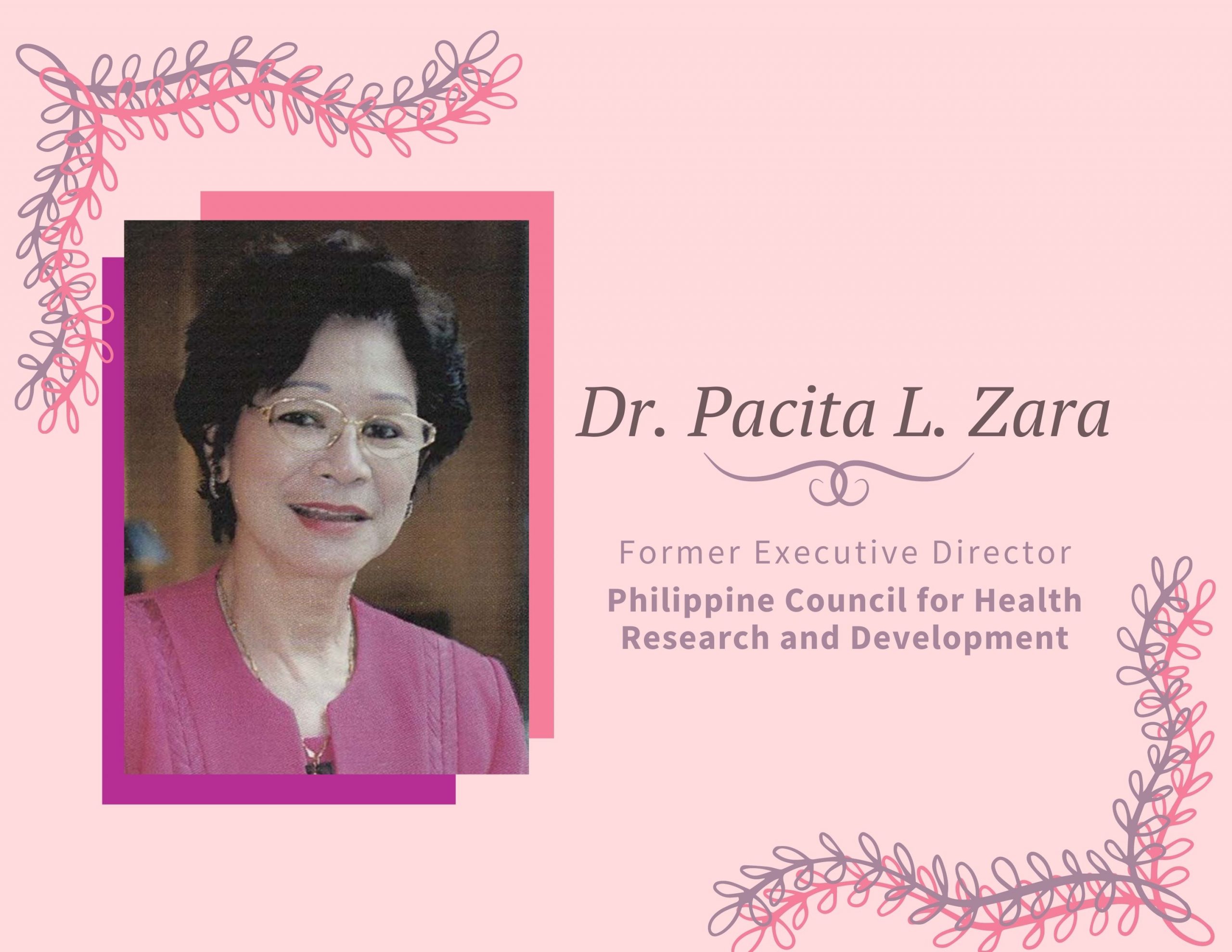NEWS AND UPDATES
Dr. Pacita Zara: An exemplary public servant of science and technology

High heels.
Coiffed hair.
Pencil skirts.
A lady like this once walked the halls of the Department of Science and Technology. Because of her ensemble, few would think that she worked there as a scientist, but once they knew who she was, it would not be as surprising.
With poise and grace handed down by her mother, 1933 Miss Philippines Engracia Arcinas Laconico, and a gift of foresight from her father, National Scientist, Dr. Gregorio Ynciong Zara, Dr. Pacita Zara proved that a lady could take huge strides towards the future and make a difference through science.
Future Forward
In 1990, Dr. Pacita Zara became PCHRD’s Executive Director, but she already served the Department of Science and Technology for 27 years, back when it was still the National Science Development Board in 1963. Dr. Zara was often seen as aloof and is known to be quite meticulous, but Ms. Fabie Concepcion, her secretary of 20 years, assured that she was kind and approachable.
She first served the Philippine Council of Health Research and Development as its Deputy Director in 1982, immediately upon its inception. Her instatement led to partnerships with the Department of Health and the University of the Philippines Manila and the eventual establishment of the Health Research and Development Information Network, or HERDIN, in 1986.
When HERDIN was launched with the creation of the Medical and Health Library Association of the Philippines in 1988, it was one of the few health information repositories that used the internet in the country at that time, but it was able to attract not only local subscribers but also the World Health Organization and research institutions from other countries.
During the early stages of PCHRD, herbal medicines like Lagundi and Sambong were already tried and tested for mass distribution and utilization, and by the time she stepped up as PCHRD’s Executive Director, she moved towards commercializing and globalizing them.
Ascof™ Lagundi by Pascual Laboratories, now a household name for asthma and cough relief, is one of PCHRD’s success stories under Dr. Zara’s leadership. Her continued support for herbal drug research and development and commercialization eventually led to foreign interest in the adoption and distribution of Lagundi.
But who would have thought that this advocacy in Philippine herbal medicines would eventually help the country in its fight against a global health crisis? Even after her retirement, her influence is still felt as the standard formulations for Lagundi now widely available in the market have been found to be effective against mild symptoms of COVID-19.
The Philippine Genome Center, which is now instrumental in identifying COVID-19 variants present in the country, was also one of the many offshoots of her foresight. At the cusp of her retirement in 2001, the dawn of the new millennium, PCHRD began looking at genomics as a potential solution for our nation’s health problems. Robotics and ICTs for health were also solutions that PCHRD started exploring towards the end of her term.
Philippines, Inc.
Philippines, Inc. was Dr. Zara’s moniker for her vision: that all sectors of Philippine society, PCHRD included, will band together to improve every Filipino’s quality of life. This vision enabled cooperation between the commercial and health S&T sectors, industries that once were distant from each other. It also opened our country to more possibilities and solutions by embracing globalization.
Dr. Zara was still able to see her visions become reality before her passing on November 6. She witnessed the evolution of the initiatives and solutions she helped build. She saw the enactment of RA 10532, or the law that institutionalized the Philippine National Health Research System and recognized HERDIN as the country’s official health research repository, more than three decades after it was created. She was even able to see her father’s invention, the two-way video telephone, come to life and evolve into more sophisticated technologies and applications that Filipinos and people from all over the world are now using to connect with each other.
One would say that her life was one well-lived, one that was dedicated to improving the lives of her fellowmen. But celebrating Dr. Pacita Zara not only acknowledges her achievements but gives young Filipino women an image to emulate, and hopefully encourage more ladies to take up careers in science and make a difference for their country.




